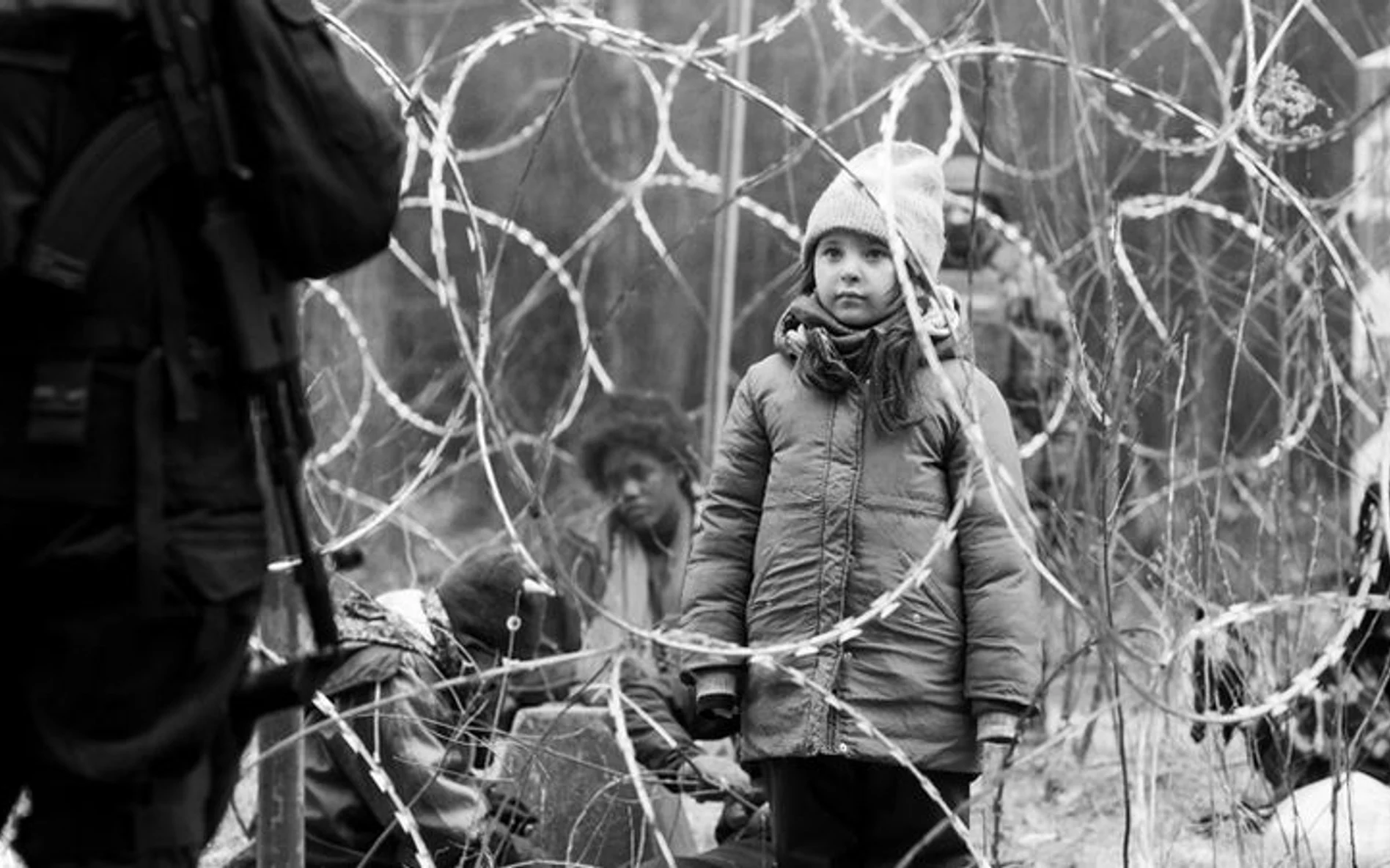After reading initial rave reviews, I thought it would be worth watching the film to engage in debates. Perhaps Agnieszka Holland had truly produced a world-class movie? Turns out, she didn’t.
It’s a blatant propaganda film, so crudely anti-government that it evokes laughter when it should prompt reflection on the plight of “people seeking their place in the world.”
The movie is overly simplistic, devoid of suspense, and predictably set from start to finish.
I’m genuinely puzzled, even amused, when I read claims that it’s an “objective,” “apolitical” film, or “beautiful cinema with ambiguous judgments.”
“Green Border” offers as much nuance as an average adult movie. It’s blunt and in-your-face, leaving no doubt about who the villain is, who’s the lost sheep, and who’s the hero in a red cloak, ready to save, comfort, and introduce the downtrodden to a better world.
The real antagonist, though, is the Polish state, its institutions, and ruling party politicians, particularly those named, ministers Mariusz Kamiński, Maciej Wąsik, and Zbigniew Ziobro, and those shown, President Andrzej Duda and Defense Minister Mariusz Błaszczak.
The movie does depict a few “good Poles” (reminiscent of “good Germans”). A woman hands out a bread roll and a farmer offers two apples. But these gestures are quickly overshadowed by betrayal and callousness like trying to run over refugees hiding in tall cornfields.
Only the “activists” and opposition party voters are portrayed positively, almost to the point of sainthood.
The refugees, en route to Sweden, are depicted as cultured, multi-lingual families while a group of young black men embody higher culture politely conversing in French. Any hostility toward Polish authorities is dismissed as marginal.
What’s truly repugnant is the portrayal of the Border Guard as Nazis. Scenes of Polish officers handling Belarusian “tourists” are reminiscent of concentration camp horrors. There’s excessive violence, with one scene showing an officer throwing a thermos bottle over the wire for a dark-skinned man, who drinks from it, ingesting shards of glass. Disturbing!
Off-duty, these guards are shown as brutes, partying and indulging in boorish activities. But when refugees accidentally inhabit one of their homes and clog a toilet, they leave behind an apology note, blaming a child’s upset stomach. In light of this depiction, I understand the Border Guard’s controversial statement: “Only pigs sit in the cinema.” The hatred they endure in this film is palpable. After watching “Green Border,” I, like many others, feel utterly defiled by the movie.
Agnieszka Holland is an important figure in the world of cinema. Only she could create such a slanderous film and expect half of Poland to cheer for her undying talent. However, she is a global figure, so we’ll later wonder alongside her why our international reputation has soured.






